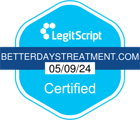Is Sober Living a requirement after going to rehab?
If you have completed a rehab program for substance abuse, you may be wondering what the next step is for your recovery journey. One option that many people consider is sober living, which is a type of transitional housing that provides a safe and supportive environment for people who are recovering from addiction. But is sober living a requirement after going to rehab? The answer is not simple, as different people may have different needs and preferences. However, in this blog post, we will explore some of the benefits and challenges of sober living, and help you decide if it is right for you.
What is sober living?
Sober living is a form of housing that is designed to help people maintain their sobriety after leaving rehab. Sober living homes are usually shared by several residents who have similar recovery goals and follow certain rules and expectations. Some of the common features of sober living homes are:
– No alcohol or drugs are allowed on the premises
– Residents must attend regular meetings, such as 12-step groups or therapy sessions
– Residents must pay rent and contribute to household chores
– Residents must abide by a curfew and respect the privacy and property of others
– Residents must participate in random drug testing
– Residents must seek employment, education, or volunteer opportunities
Sober living homes are not the same as treatment facilities, as they do not provide medical or clinical services. They are also not the same as halfway houses, as they do not have strict regulations or time limits. Sober living homes are meant to be a bridge between rehab and independent living, where residents can practice the skills and habits they learned in treatment while receiving peer support and accountability.
What are the benefits of sober living?
Sober living can offer many advantages for people who are recovering from addiction, such as:
– Reducing the risk of relapse: One of the biggest challenges of recovery is avoiding triggers and temptations that can lead to substance use. Sober living homes provide a drug-free and alcohol-free environment that can help residents stay focused on their sobriety goals. They also offer access to resources and referrals that can help residents cope with cravings, stress, or other issues that may threaten their recovery.
– Increasing social support: Another important factor in recovery is having a strong support network of people who understand and encourage your recovery journey. Sober living homes offer an opportunity to connect with other residents who share similar experiences and challenges. They also foster a sense of community and belonging, where residents can give and receive feedback, advice, and encouragement.
– Enhancing life skills: Recovery is not only about abstaining from substance use, but also about improving your overall quality of life. Sober living homes can help residents develop essential life skills that can help them succeed in their personal and professional lives. These skills include managing finances, maintaining hygiene, cooking healthy meals, finding employment or education opportunities, and resolving conflicts.
– Preparing for independent living: Sober living homes can also serve as a stepping stone to independent living, where residents can gradually transition to a more autonomous lifestyle. Sober living homes can help residents build confidence and self-esteem, as well as establish routines and structure that can help them maintain their sobriety in the long term.
What are the challenges of sober living?
Sober living is not without its difficulties, however. Some of the potential challenges of sober living are:
– Cost: Sober living homes are not covered by insurance, so residents have to pay out-of-pocket for their rent and utilities. The cost of sober living may vary depending on the location, amenities, and services offered by the home. Some sober living homes may offer scholarships or sliding scale fees for low-income residents, but others may not. Therefore, it is important to consider your budget and financial situation before choosing a sober living home.
– Compatibility: Sober living homes are not one-size-fits-all, as different homes may have different rules, expectations, cultures, and atmospheres. Some sober living homes may be more strict or lenient than others, or more religious or secular than others. Some sober living homes may cater to specific populations, such as men, women, LGBTQ+, veterans, or young adults. Therefore, it is important to do your research and visit several sober living homes before deciding which one suits your needs and preferences.
– Commitment: Sober living requires a high level of commitment and dedication from the residents, as they have to follow the rules and expectations of the home and participate in various activities and meetings. Sober living also requires a willingness to change and grow, as well as an openness to feedback and criticism from others. Sober living is not easy, but it can be rewarding if you are ready and motivated to embrace it.
Is sober living right for you?
Sober living is not a requirement after going to rehab, but it can be a beneficial option for many people who are recovering from addiction. Sober living can provide a safe and supportive environment where you can continue your recovery journey and prepare for independent living. However, sober living is not for everyone, as it may not suit your needs, preferences, or circumstances. Therefore, the decision to enter sober living should be based on your personal goals, values, and readiness.
If you are interested in sober living, you should consult with your treatment team, such as your therapist, counselor, or case manager. They can help you assess your situation and recommend the best sober living home for you. They can also help you plan your transition and provide ongoing support and guidance.
Sober living is not a guarantee of recovery, but it can be a helpful tool that can enhance your chances of success. If you are looking for a way to maintain your sobriety and improve your life after rehab, sober living may be worth considering.
Better Days Treatment provides Sober Living in Anaheim and California.

